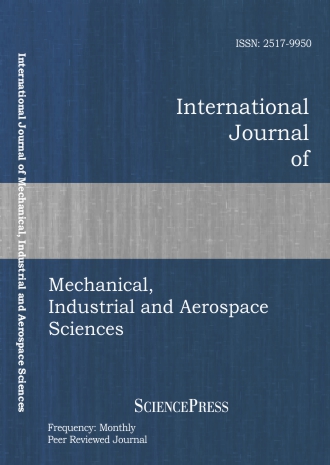
Scholarly
Volume:7, Issue: 4, 2013 Page No: 543 - 551
International Journal of Mechanical, Industrial and Aerospace Sciences
ISSN: 2517-9950
Experimental and Numerical Study of the Effect of Lateral Wind on the Feeder Airship
Feeder is one of the airships of the Multibody Advanced Airship for Transport (MAAT) system, under development within the EU FP7 project. MAAT is based on a modular concept composed of two different parts that have the possibility to join; respectively they are the so-called Cruiser and Feeder, designed on the lighter than air principle. Feeder, also named ATEN (Airship Transport Elevator Network), is the smaller one which joins the bigger one, Cruiser, also named PTAH (Photovoltaic modular Transport Airship for High altitude),envisaged to happen at 15km altitude. During the MAAT design phase, the aerodynamic studies of the both airships and their interactions are analyzed. The objective of these studies is to understand the aerodynamic behavior of all the preselected configurations, as an important element in the overall MAAT system design. The most of these configurations are only simulated by CFD, while the most feasible one is experimentally analyzed in order to validate and thrust the CFD predictions. This paper presents the numerical and experimental investigation of the Feeder “conical like" shape configuration. The experiments are focused on the aerodynamic force coefficients and the pressure distribution over the Feeder outer surface, while the numerical simulation cover also the analysis of the velocity and pressure distribution. Finally, the wind tunnel experiment is compared with its CFD model in order to validate such specific simulations with respective experiments and to better understand the difference between the wind tunnel and in-flight circumstances.